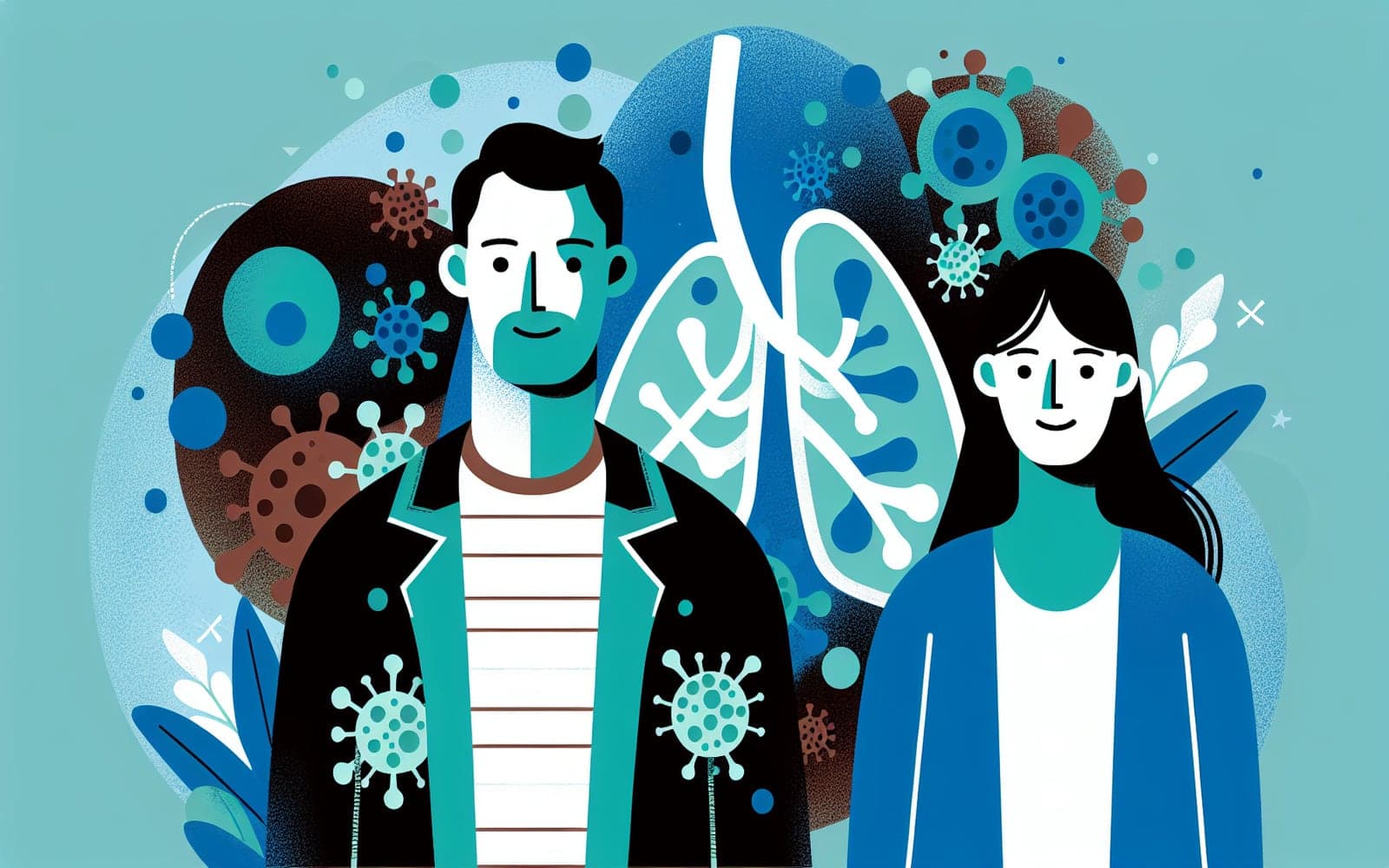Mycoplasma Pneumonia: The Sneaky Respiratory Infection You Need to Know About
Published: May 01, 2024

Medically reviewed by Benjamin Seth Martinez | MD, Statpearls - Director of Clinical Content on May 1st, 2024.
Mycoplasma pneumonia is a common but often overlooked respiratory infection. It's caused by a tiny bacterium that can lead to mild or severe illness.
Contents
Symptoms: Not Your Average Cold
Mycoplasma pneumonia often starts gradually with a sore throat, fatigue, and low-grade fever. As it progresses, a persistent dry cough develops, sometimes accompanied by chest pain or shortness of breath. Unlike typical pneumonia, the symptoms can be milder and more prolonged, lasting up to a month in some cases.
Diagnosis: A Tricky Detective Game
Diagnosing mycoplasma pneumonia can be challenging because its symptoms overlap with other respiratory infections. Chest X-rays may show subtle changes, and blood tests can be inconclusive early on. Specialized tests like PCR or serology are often needed for a definitive diagnosis. However, treatment is typically started based on clinical suspicion before test results are available.

Treatment: Targeting the Tiny Troublemaker
Antibiotics are the main treatment for mycoplasma pneumonia. Macrolides like azithromycin are commonly used, but tetracyclines or fluoroquinolones may be preferred in some cases, especially where macrolide resistance is common. It's important to complete the full course of antibiotics, even if symptoms improve quickly. Rest and supportive care, including staying hydrated, are also crucial for recovery.
Frequently Asked Questions
Yes, reinfection is possible as immunity is not long-lasting.
You can be contagious for several weeks, even after starting antibiotics.
It's more common in children and young adults but can affect any age group.
Rarely, it can lead to serious complications like encephalitis or hemolytic anemia.
Key Takeaways
While often mild, mycoplasma pneumonia shouldn't be underestimated – early recognition and proper treatment are key.
Concerned about persistent respiratory symptoms? Talk to Doctronic about whether mycoplasma pneumonia could be the culprit.Related Articles
References
Waites KB, Xiao L, Liu Y, et al. Mycoplasma pneumoniae from the Respiratory Tract and Beyond. Clin Microbiol Rev 2017; 30:747.
Jain S, Self WH, Wunderink RG, et al. Community-Acquired Pneumonia Requiring Hospitalization among U.S. Adults. N Engl J Med 2015; 373:415.
This article has been reviewed for accuracy by one of the licensed medical doctors working for Doctronic. Always discuss health information with your healthcare provider.

